Emeritus status
Emeritus status is the highest recognition Université Laval confers on faculty members.
2022
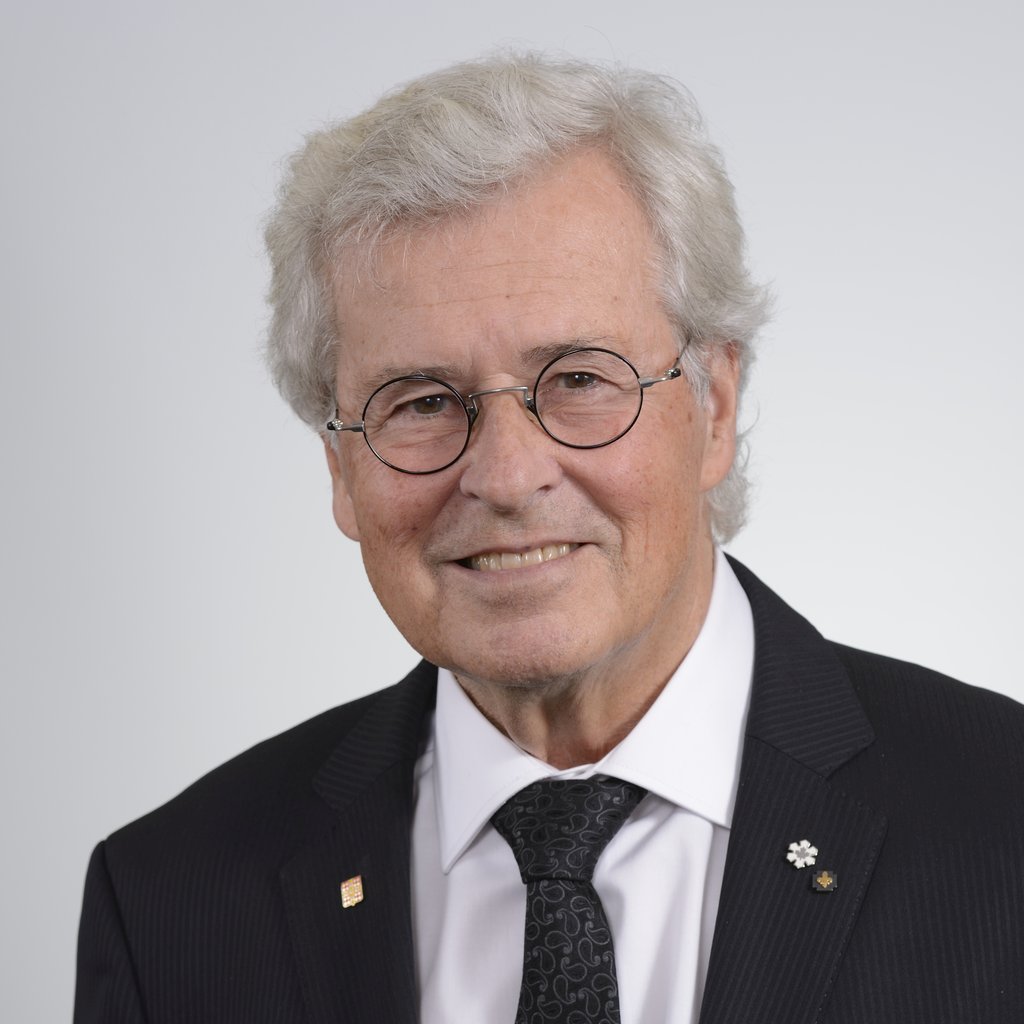
Michel G. Bergeron
Professor Emeritus
Learn more
Dr. Michel G. Bergeron is an internationally renowned infectious disease specialist and the founder of Canada's largest infectious disease centre. He has distinguished himself as an educator, researcher, clinical physician, and entrepreneur during his 48-year career at Université Laval and the CHU de Québec-Université Laval. Among his many accomplishments, he revolutionized infection diagnosis by creating the first 10 PCR tests approved by the Food and Drug Administration (FDA), and now sold in some 50 countries.
An innovative and influential researcher
In 1974, after specializing in infectious disease treatment at Tufts University in Boston, Dr. Bergeron founded Laboratoire et service d'infectiologie at Centre hospitalier de l'Université Laval—now the Infectious Disease Research Centre (CRI)—at a time when the specialty did not exist in Canada. Eager to help develop the field, this pioneering Canadian co-founded several scholarly organizations, including the Canadian Infectious Disease Society, the Inter-American Society of Chemotherapy, and the Canadian Association for HIV Research. CRI, which Dr. Bergeron led until 2016, is now home to more than 200 researchers and is recognized as one of North America's leading infectious disease research centres.
To combat the new global scourge of HIV/AIDS in the 1980s, Dr. Bergeron cofounded Unité de recherche clinique sur le VIH/SIDA. a clinical research unit at CHUL. Over the next decade, his work led him to create the invisible condom, a vaginal microbicide gel imperceptible to one's partner. Dr. Bergeron's immense creativity and love of technology drew him to genomics early on, and he developed the first PCR tests, which can detect microbes and their resistance genes in under an hour. This innovation spawned two major companies in Québec City, Infectio Diagnostic (now Becton Dickinson) and GenePOC (now Meridian Bioscience), which commercialize the innovations produced at CRI, including 10 rapid molecular tests and the Revogene testing instrument.
With over 525 published papers cited more than 21,000 times, Professor Bergeron has an outstanding h-index of 68. He has authored some 50 book chapters, given more than 600 presentations, and holds 35 Canadian, American, and European patents.
Boundless enthusiasm and commitment
In the course of his career, Dr. Bergeron has shared his knowledge with some 7,000 undergraduate students and trained more than 80 graduate students. During his eight years as head of the Department of Microbiology, he modernized teaching methods in the discipline by merging basic and clinical sciences. But his drive to spread his passion for science has not been limited to the university level. In 1998, he created the Researcher for a Day program to introduce high school students to scientific research.
Dr. Bergeron has contributed to the editorial teams of many scientific journals and has served on numerous advisory committees, including Grand Challenges Canada, the Council of Canadian Academies, and the Canadian Space Agency. In recognition of his commitment and remarkable achievements, he has received 56 awards, including the Louis-Pasteur Award from Association des médecins microbiologistes infectiologues du Québec, Prix du Québec's Wilder Penfield prize for biomedical research, and the Principal Award in innovation from the Ernest C. Manning Foundation. He is an Officer of Ordre national du Québec, a member of the Order of Canada, and a Canadian Medical Hall of Fame inductee.
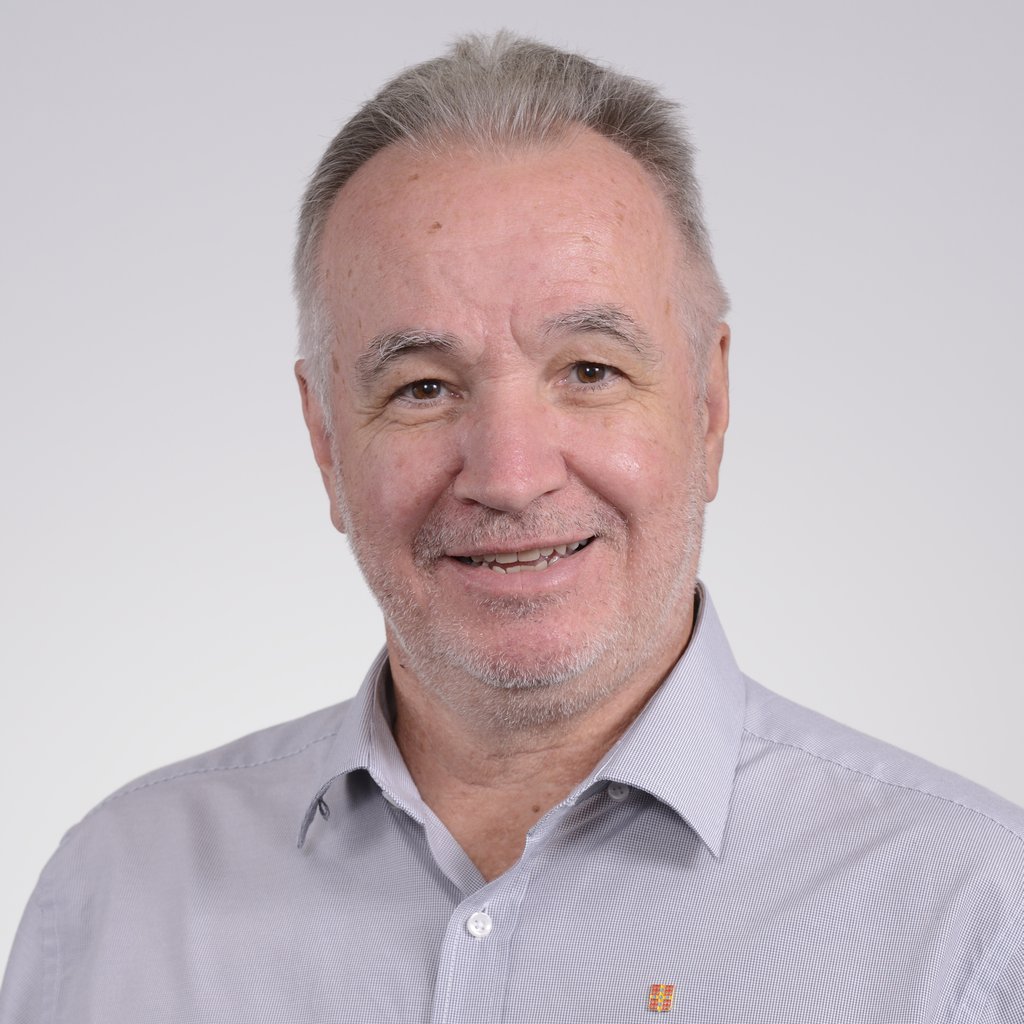
Jean-Pierre Brun
Professor Emeritus
Learn more
Jean-Pierre Brun held the Chair in Occupational Health and Safety Management for two decades. A pioneer in his field, he established the world's first specialized MBA in occupational health and safety management and has been a trusted advisor to numerous government agencies, businesses, and unions.
Pioneering a new discipline
Professor Brun's commitment and skills were instrumental in establishing the Faculty of Business Administration (FSA) as a centre of excellence in occupational health and safety (OHS) management. His pioneering work was recognized as early as 1998, when he won FSA's Hermès Award for Research Excellence. In 2000, he was awarded the Chair in Occupational Health and Safety Management and broke new ground by creating an MBA in the field. Today this internationally renowned MBA program is the pride of the FSA, which is now home to five other professors specializing in organizational health.
In 2002, Professor Brun founded the Quebec Occupational Health and Safety Research Network, which brings together more than 100 researchers in the aim of supporting knowledge development and providing a framework for collaborative research in OHS.
He also trained more than 200 students and supervised 29 graduate students in the field of OHS management over the course of his career.
Taking concrete action to promote worker health
Recognized for his innovative scientific achievements, Professor Brun has conducted research on OHS management in small- and medium-sized enterprises (SMEs), recognition at work, and stress prevention strategies. In 2005, he published a series of fact sheets entitled La reconnaissance au travail, with over 5,000 copies in print and more than 10,000 downloads. He has also written five books, including Le pouvoir de la reconnaissance (The power of recognition at work), which won the HR Recognition Award for «Book of the Year» from Ordre des conseillers en ressources humaines agréés. He recently co-authored Santé psychologique au travail et COVID-19 (COVID-19 and mental health in the workplace) to promote wellness in the workplace during the pandemic.
Professor Brun's expertise has frequently led him to work with organizations and public decision makers, particularly to improve OHS prevention strategies. He served as member of the college of experts of France's National Institute of Statistics and Economic Studies' to help define national guidelines for the prevention of psychosocial workplace hazards and has also acted as scientific advisor to the Commission des normes du travail on the prevention of workplace psychological harassment, and to the Commission des normes, de l'équité, de la santé et de la sécurité du travail on provisions to prevent psychosocial hazards in the workplace. His contributions to the world of work earned him a Canada Award for Excellence in the Healthy Workplace category from the Canadian Healthy Workplace Council in 2005, and a professional achievement award in 2020 from Société québécoise de psychologie du travail et des organisations.
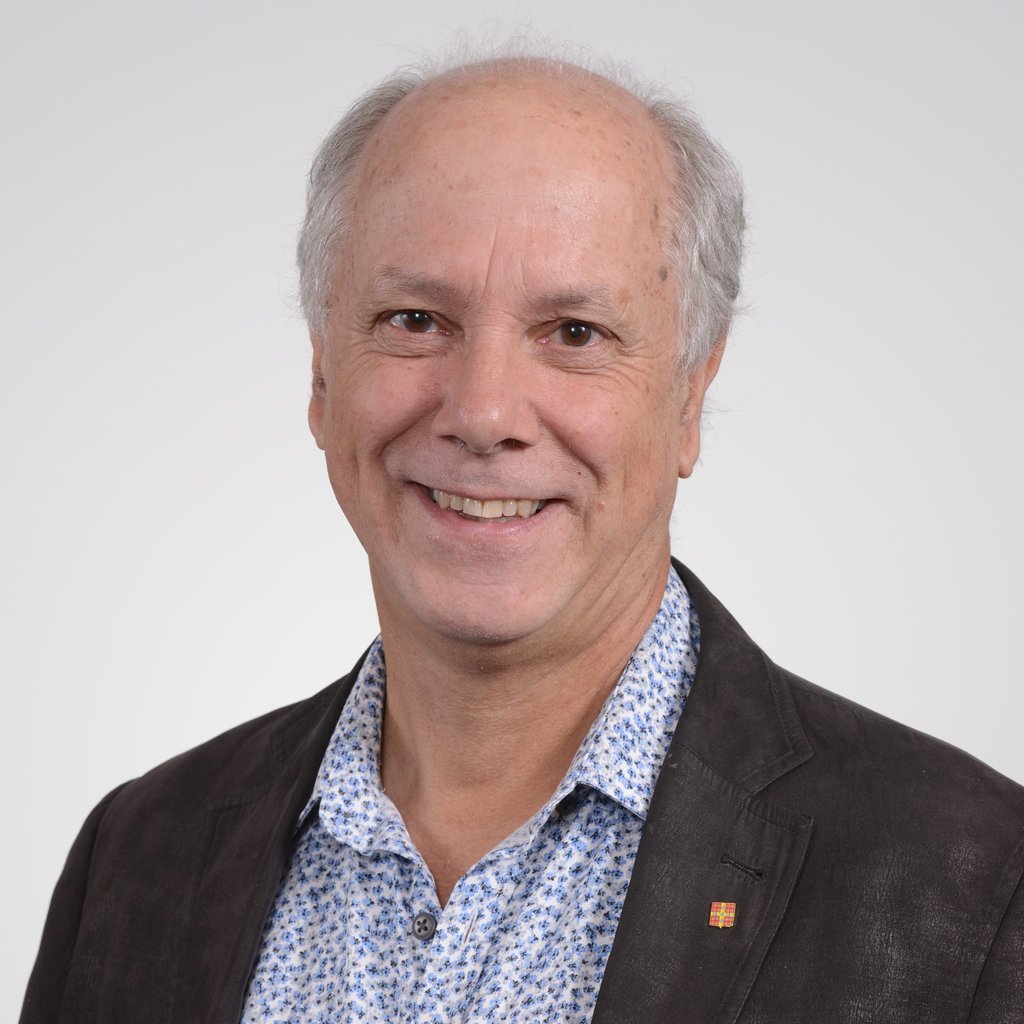
Gaston De Serres
Professor Emeritus
Learn more
Dr. Gaston De Serres is an epidemiologist who specializes in the prevention and control of vaccine-preventable infectious diseases. He is internationally renowned for his work on vaccine efficacy and safety and is also one of the pillars of Institut national de santé publique du Québec, where he serves as chief physician of its scientific immunization group, Groupe scientifique en immunisation.
An inspiring professor and physician
In the early 1980s, shortly after graduating, Gaston De Serres began practising family medicine, first in Africa and then in Québec City. Some ten years later, he began working in public health in the area of infectious disease control, while at the same time pursuing studies in epidemiology, with a focus on measles vaccination. After specializing in immunization, he co-founded Groupe scientifique en immunisation, now a major Canadian centre for vaccine research, in the mid-1990s. Since 1997, he has been a professor at the Faculty of Medicine, where he has supervised or co-supervised 30 graduate students.
Dr. De Serres was recruited by Institut national de santé publique when it was founded in 1998 and is also a regular researcher in the infectious and immune disease axis at the CHU de Québec–Université Laval Research Centre. He is recognized for the quality of his work on the epidemiology of vaccine-preventable diseases, the investigation of vaccine side effects, and the effectiveness of vaccination programs, and has penned over 300 scientific papers in prestigious journals.
To honour his remarkable achievements in clinical practice, research, and teaching, as well as his outstanding contribution to the medical profession, Collège des médecins du Québec awarded him its Excellence Award in 2021.
An eminent immunization expert
Among his outstanding research achievements is the test-negative design method, which revolutionized vaccine evaluation in 2003. This novel methodological approach, now used worldwide to estimate the efficacy of influenza vaccines each season, is also the most widely used approach for evaluating the efficacy of COVID-19 vaccines.
Dr. De Serres is a member of a number of scientific boards, including Comité sur l'immunisation du Québec, the Canadian Measles and Rubella Elimination Committee, the National Advisory Committee on Immunization, and the Public Health Agency of Canada's Influenza Research Network. His expertise is also recognized internationally; he has served as a consultant to the World Health Organization and the Pan American Health Organization, and as a guest researcher at the U.S. Centers for Disease Control and Prevention. In recognition of his tremendous commitment to immunization, he also received the Dr. John Waters Memorial Public Health Award, which celebrates outstanding contributions to public health and immunization programs and policies.
More recently, Professor De Serres played a key role in helping Québec society manage the SARS-CoV-2 outbreak, a virus on which he is currently conducting a number of studies. He has also actively participated in efforts to explain the effects of the coronavirus and vaccination to the public and has given over 850 interviews on the subject. A number of media outlets, such as L'Actualité and La Presse, have paid tribute to De Serres for being such an accessible and generous contributor throughout the pandemic.
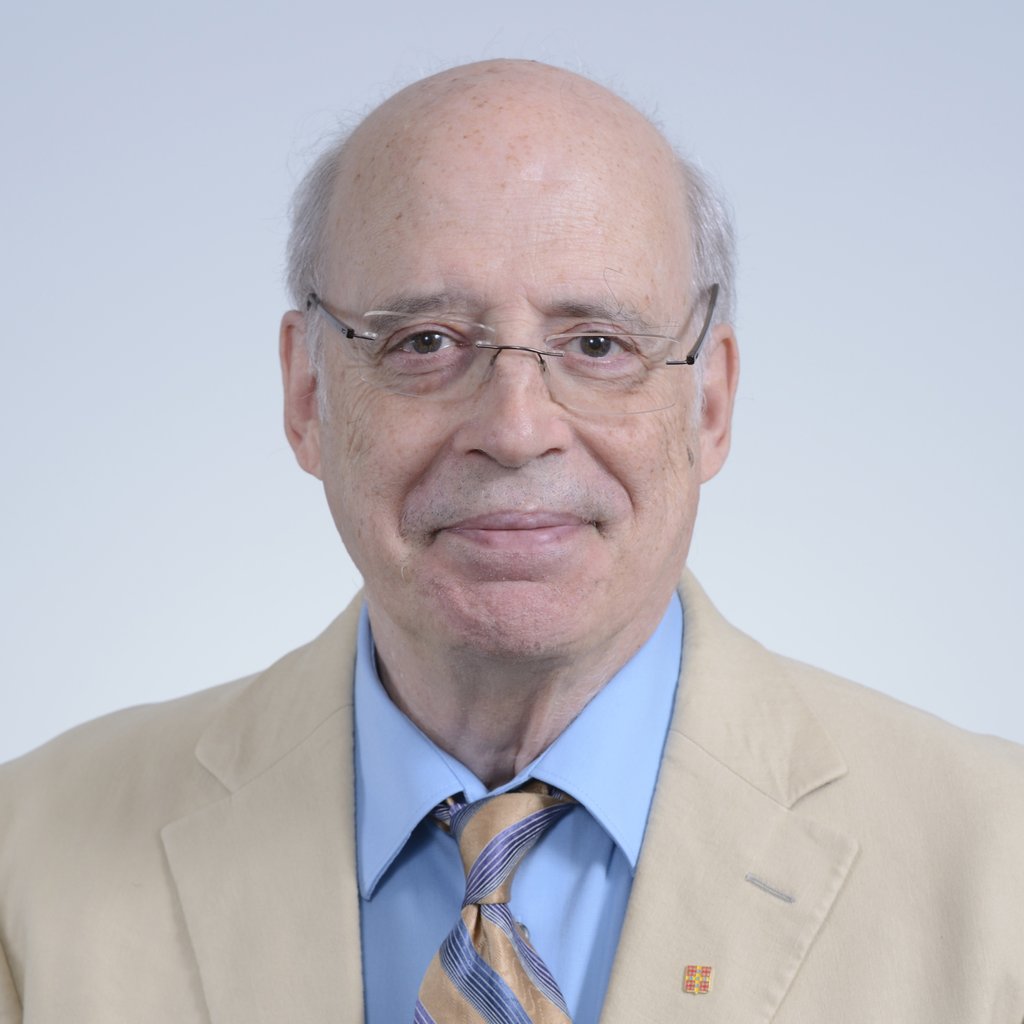
Bernard Fortin
Professor Emeritus
Learn more
Renowned economist Bernard Fortin was a Canada Research Chair for nearly 15 years and has distinguished himself in several subfields of his discipline, including labour economics, economic analysis of social interactions, and health economics. He is considered one of Canada’s top economic researchers and has been a visiting scholar at many universities abroad.
Noteworthy contributions
Professor Fortin was recruited by Université Laval in 1973 and quickly established himself as an authority in his field. His many contributions include the co-development of a household labour supply model to help explain how couples negotiate the sharing of resources between spouses. This model is now a foundational tool in labour economics for studying income sharing within families and analyzing intra-household inequalities. He has also published influential work on peer effects in social networks. This research, which is now considered a major contribution to social interaction analysis, uses an approach that has since been extended to the study of the social transmission of behaviours, including junk food consumption leading to obesity.
Bernard Fortin held the Canada Chair in Economics of Social Policies and Human Resources from 2001 to 2015 and is known for his versatility. Over the course of his long career, he has studied peer effects on academic performance, the impact of physician payment mechanisms on the volume and quality of medical services, and the influence of taxation and social transfers on the decision to work in the underground economy. He has published nearly 60 papers in leading academic journals and written 30 book chapters. According to Google Scholar, his publications have been cited over 7,000 times.
Professor Fortin is deeply committed to advancing research. He founded and directed the Quebec Inter-University Centre for Social Statistics laboratory at Université Laval and the Interuniversity Center on Risk, Economic Policies and Employment. He has also served as a member of various boards and organizations, including Revenue Canada's Compliance Advisory Committee, the evaluation committee of the Canada Foundation for Innovation, and Société canadienne de science économique, of which he was president.
Acclaimed expertise
Professor Fortin has been a visiting scholar at leading universities and research centres such as MIT, Columbia University, Paris School of Economics, Université de Paris 1 Panthéon-Sorbonne, Aix-Marseille University, Virginia Tech University, Université Lumière Lyon 2, and the Center for Research in Economics and Statistics (France). He is also a highly regarded educator who has supervised or co-supervised 80 master’s students, 23 PhD candidates, and 10 postdoctoral fellows.
The originality of his thinking and the relevance of his work have been recognized with several prestigious distinctions. In 1997 he received the Marcel Dagenais Award from Société canadienne de science économique, awarded every three years in recognition of outstanding achievements in economic research, followed in 2004 by the Gérard Parizeau Award for career achievements in management, insurance, or economics research. He is a fellow of the Centre for Interuniversity Research and Analysis on Organizations (CIRANO), the Institute of Labor Economics, and the Canadian Economic Association. Professor Fortin has been a member of the Royal Society of Canada since 2000.

Geneviève Fournier
Professor Emeritus
Learn more
Geneviève Fournier is renowned for her research on contemporary career paths and our relationship with work. For 17 years, she led Centre de recherche et d'intervention sur l'éducation et la vie au travail (CRIEVAT), a centre for research and intervention on education and working life). Her work and reputation were instrumental in allowing Université Laval to become a member of the UNESCO Chair in Lifelong Guidance and Counselling.
In tune with societal change
The profound changes that have transformed the labour market in recent decades meant that theoretical models in counselling needed to be revised. Having participated in 26 major research projects, Geneviève Fournier contributed significantly to revitalizing the discipline, particularly through the novel and diverse nature of the issues she studied. These issues included the lengthening of social and career integration trajectories and the challenges of job insecurity, work-life balance, well-being at work, and the relationship to work. A new understanding of career paths—which are now individualized, unpredictable, and punctuated by multiple transitions, interruptions, and turning points—led her to develop a five-point analytical framework for contemporary career paths, based on several of her research projects.
Professor Fournier, a pioneer in knowledge mobilization in practice settings, has published some 20 articles geared to the general public and has been invited to lead numerous seminars, workshops, and continuing education activities. In order to connect academic research to the world of work, she created the Interagir method in 1995, a career counselling and integration strategy still used in Canada and France.
In the course of her 30-odd year career, Professor Fournier became an authority in her field. She has authored more than 100 articles, produced 19 research reports, co-edited 10 collective works and 7 themed journal issues, and published 5 books. She is a sought-after speaker and has given 90 papers and presentations, nearly half of them abroad. She has also organized 27 scientific events, including some 15 international gatherings.
An inestimable legacy
In 1990 Geneviève Fournier helped found Centre de recherche sur le développement de carrière, the career development research centre that was renamed CRIEVAT in 1999. The renaming was accompanied by a major restructuring, led by Professor Fournier. Since then, CRIEVAT has been recognized as a Université Laval centre of excellence 3 times, and it is one of the few research centres in Canada dedicated to studying individual-training-employment relationships. Today, the centre has 78 student members and 44 researchers from around the world. Professor Fournier's leadership and the work that she and other members of CRIEVAT completed helped pave the way for Université Laval to become a member of the UNESCO Chair in Lifelong Guidance and Counselling and the UNITWIN Network for Life Designing Interventions (counselling, guidance, education) for decent work and sustainable development.
From 2004 to 2006, Geneviève Fournier was the vice dean of graduate studies and research at the Faculty of Education, and she has worked tirelessly for the well-being of the student community. In 1998, for example, she established a research support program under the Desjardins Career Development Fund of the Université Laval Foundation and ran the program for 17 years. The fund now holds more than$1 million in assets and provides financial support for the research activities of students and graduates, an invaluable legacy for the university.
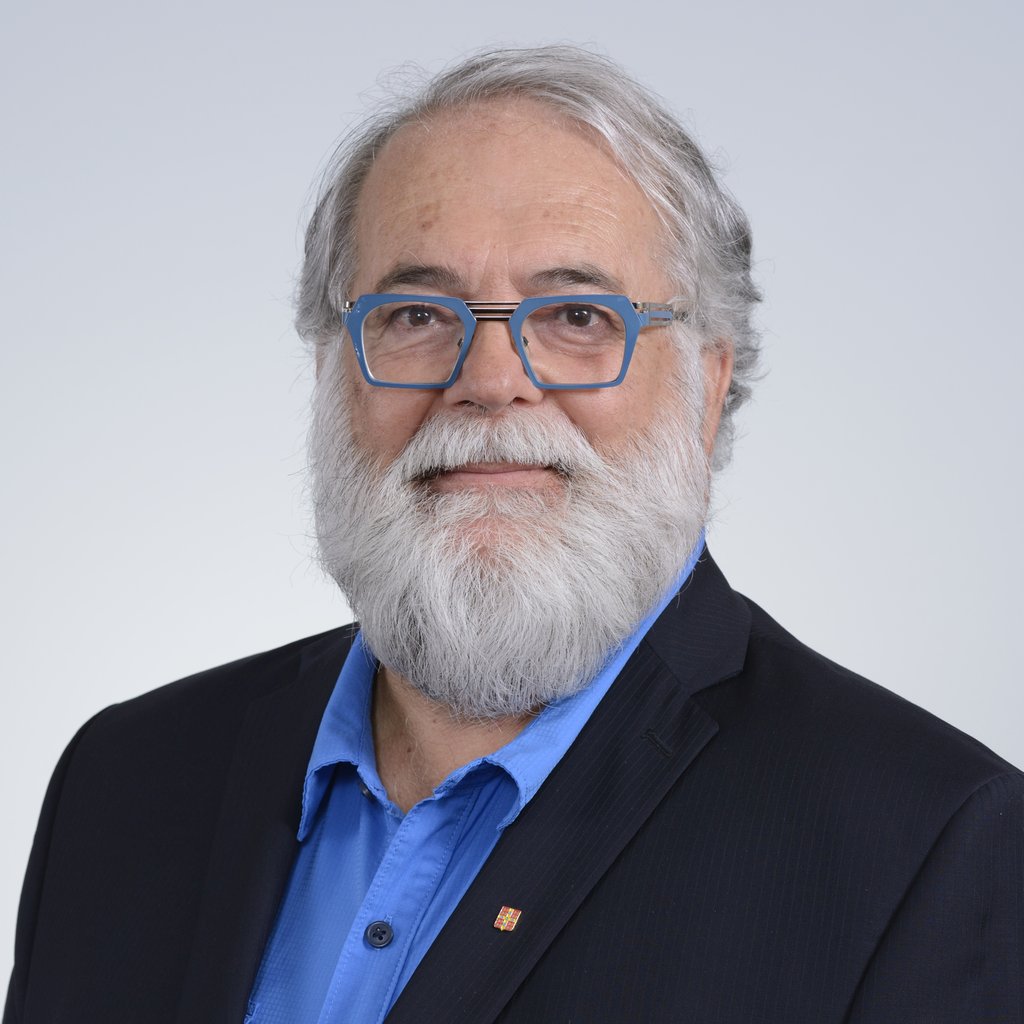
Clermont Gauthier
Professor Emeritus
Learn more
Clermont Gauthier is reputed for his pioneering research on the effectiveness of various teaching strategies and was the first Canada Research Chair in Teacher Training. As a leader in his field, he has been called on to put his knowledge and expertise to work for society, notably by drafting a teacher training policy for Québec’s Ministère de l’Éducation that later served as a model in other countries.
Rethinking teacher training
In the early 1980s, the U.S. education system found itself the target of a growing wave of criticism, with detractors arguing that poor education quality stemmed from poorly trained teachers. In academia, this criticism sparked a big push for research aimed at professionalizing the work of teachers and identifying best teaching practices. It was amid this period of upheaval that Clermont Gauthier, a teacher by training, joined the Université Laval faculty. Soon after, he helped co-found CRIFPE, the interuniversity research centre on training and the teaching profession, of which he served on the steering committee until 2019. Today this internationally renowned centre of excellence has a membership of more than 500 researchers and graduate students. It is still the only research centre in Canada devoted exclusively to the study of teaching and the teaching profession.
Since joining the University, Professor Gauthier has worked tirelessly to improve teacher training and professional development, publishing 53 books, 51 research reports, some 150 articles, and more than 70 book chapters. He has given nearly 400 papers and, from 2001 to 2015, he held the Canada Research Chair in Teacher Training.
In the course of his academic career, Professor Gauthier has supervised 40 graduate students and 6 postdoctoral fellows. Indeed, it was his reputation as a researcher that drew these postdoctoral scholars (all of whom were from outside Canada) to Université Laval.
Inspiring people in Canada and around the world
Clermont Gauthier’s reputation has also led him to play a leading education policy role in Québec. In 2001 he co-authored La formation à l’enseignement – Les orientations – Les compétences professionnelles, a Québec Ministère de l’Éducation plan used by Québec universities to develop their new teacher training programs. This document also served as the basis for similar core programs in France and Switzerland. A gifted speaker, Professor Gauthier is highly sought after in the media for his expertise in the area of education reform.
Clermont Gauthier’s commitment to quality education extends well beyond our borders. He has been involved in a number of teacher training projects in Africa and Brazil and served as a guest researcher with UNESCO to prepare a research report as part of the major study Education for All – The Quality Imperative. Professor Gauthier was also responsible for drafting the Québec portion of a major international study commissioned by the Organisation for Economic Co-operation and Development.
He was named a fellow of the Royal Society of Canada’s Academy of Social Sciences for his many outstanding achievements and received the prestigious ACE-Whitworth Award, which is awarded every three years to a Canadian researcher who has had a profound impact on educational policy and practice in the country.
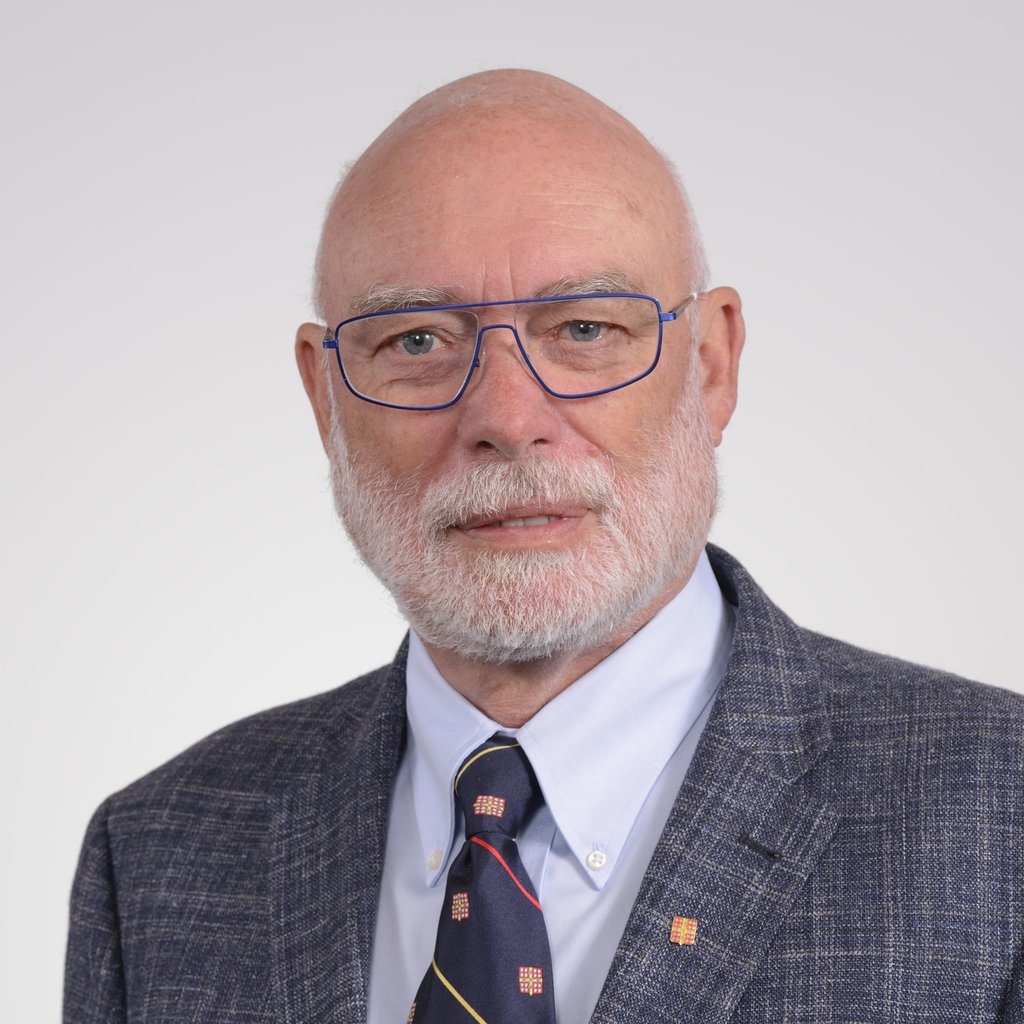
Jean-Marie Konrad
Professor Emeritus
Learn more
Jean-Marie Konrad, a leading theorist in soil frost susceptibility, was the holder of two Industrial Research Chairs at Université Laval over a 20-year period. Through an adroit combination of basic and applied research, he developed valuable tools in the fields of foundation, road, dam, pipeline, and mine engineering to contribute to northern development.
A helpful theory for northern environments
In his capacity as holder of two Natural Sciences and Engineering Research Council of Canada Industrial Research Chairs, Jean-Marie Konrad worked closely with engineering consulting firms and private laboratories, fostering partnerships focused on sustainable research with tangible benefits. For example, his research in the field of pavement engineering led to the development of design tools that account for frost action and other thermal phenomena. His work has also contributed to the development of in situ sampling and measurement methods, including the piezocone, now a standard soil characterization tool, and a soil sampling technique using a gelatin solution.
Moreover, Professor Konrad has added to our understanding of the mechanical properties of building materials under seismic loading and the development of models to predict deformations of large embankment dams. His research in this area has led to a deeper understanding of the internal erosion responsible for nearly half of all ruptures and other incidents reported worldwide.
In addition to these remarkable contributions is Professor Konrad's theory of soil frost susceptibility. Used in combination with soil description models, it remains the only theory that can be readily applied in engineering to predict frost action in soils in northern countries.
Still an active contributor to his field, Professor Konrad is currently developing a new hollow-cylinder triaxial cell for the characterization of soils under seismic action.
As the father of these innovations and the author of more than 300 published scientific papers—many of them award-winning—Professor Konrad enjoys an enviable reputation. His outstanding track record led to his appointment as vice-president of the Canadian Geotechnical Society in 2012 and 2013, and his expertise is highly sought after for more sensitive projects and legal cases.
An impactful educator
He has also contributed indirectly to the training of countless Canadian engineers through his contributions as co-author of the Canadian Foundation Engineering Manual, a classic reference in the field. Professor Konrad has supervised more than 80 graduate students and postdoctoral fellows over the course of his career and was a familiar presence to students working in the UL geotechnical laboratories he oversaw for many years.
Professor Konrad has received numerous honours in recognition of his exceptional work and the major impact it has had on engineering practice. He is a fellow of the Canadian Academy of Engineering and the Engineering Institute of Canada and a recipient of the Prix du Ministère des Affaires municipales et de la Métropole and the Roger J.E. Brown Award, presented every two years by the Canadian Geotechnical Society for outstanding contributions to permafrost science. In 2018, he was awarded a Senate 150th Anniversary Medal in recognition of his significant contribution to Canadian society.

Claude Lafleur
Professor Emeritus
Learn more
Renowned medievalist Claude Lafleur is the world’s leading authority on philosophy teaching at the University of Paris’s Faculty of Arts in the 13th century. He is highly respected both for his meticulous critical editions of philosophical texts and for his contributions to research groups and committees at home and abroad.
Bringing unpublished works to light
Recognition for Claude Lafleur’s expertise in 13th-century Latin didactic texts came early in his career, with the publication in 1988 of his Quatre introductions à la philosophie au XIIIe siècle (Four Introductions to 13th-Century Philosophy). Since then, he has established himself as the undisputed expert on didactic texts by medieval masters of arts at the University of Paris, the leading university in Europe at the time. Professor Lafleur notably analyzed Guide de l’étudiant, a student guide by an anonymous master, the best-known text from this invaluable corpus pertaining to the history of university teaching. The publication of this analysis provided him with the opportunity to organize an international symposium in 1993, bringing together the world’s leading researchers on each of the subjects covered by the Guide.
Since the 1990s Claude Lafleur has published, mainly with his lifelong collaborator, Joanne Carrier, numerous critical editions of previously unpublished works dating from the early days of universities. He has also conducted rigorous studies on the greatest thinkers of the Middle Ages, including Boece, Abelard, Thomas Aquinas, William of Ockham, and Petrarch, particularly in relation to universals, intuition, abstraction, concepts, the classification of the sciences, and friendship. In addition to his research, he has edited several thematic issues of the journal Laval théologique et philosophique on some of these major philosophers. He was also invited by the prestigious publishing house Vrin to co-edit their Logica vetus series, which includes translations, critical editions, and studies of Boece’s logical works.
Professor Lafleur has authored 109 publications in six languages (French, English, German, Spanish, Portuguese, and Latin) and has several more forthcoming. He also shared his passion for reading ancient and medieval source texts with students through the 80-odd courses and more than 30 graduate seminars he taught in the course of his career. Many of his former graduate students have gone on to teaching positions themselves and are carrying on his legacy as an educator.
A world-class researcher
Professor Lafleur has been very active at Université Laval. He is the founder of LAPAM, the UL laboratory of medieval and ancient philosophy established in 1992, and a founding member of the Institute of Ancient and Medieval Studies (IEAM). He also served on the advisory committee for the library and on the Research Board. To further students’ training and promote the University, he organized and hosted 90 lunch-and-learn sessions for LAPAM and 108 for IEAM. During the COVID-19 pandemic, he also created a new virtual lecture series, the Colloquia Quebecensia.
Professeur Lafleur sits on the editorial board of scholarly journals in Canada and Argentina and is a past member of Comité international du vocabulaire des institutions et de la communication intellectuelles au Moyen Âge and the Canada Research Chairs College of Reviewers. He has organized more than 300 academic meetings and delivered more than 120 speeches over the course of his career, including several inaugural lectures, notably at an international symposium held in his honour in Argentina. The work Non est excellentior status: vaquer à la philosophie médiévale is further testimony to the esteem in which he is held among medievalists. Études offertes en hommage à Claude Lafleur, a collective homage to Claude Lafleur with contributions from 24 researchers from 10 countries, will be released in 2022.
Given his international reputation and outstanding achievements, it is no surprise that he was inducted into the Royal Society of Canada’s Academy of Arts and Humanities and Academy of Social Sciences in 2020.
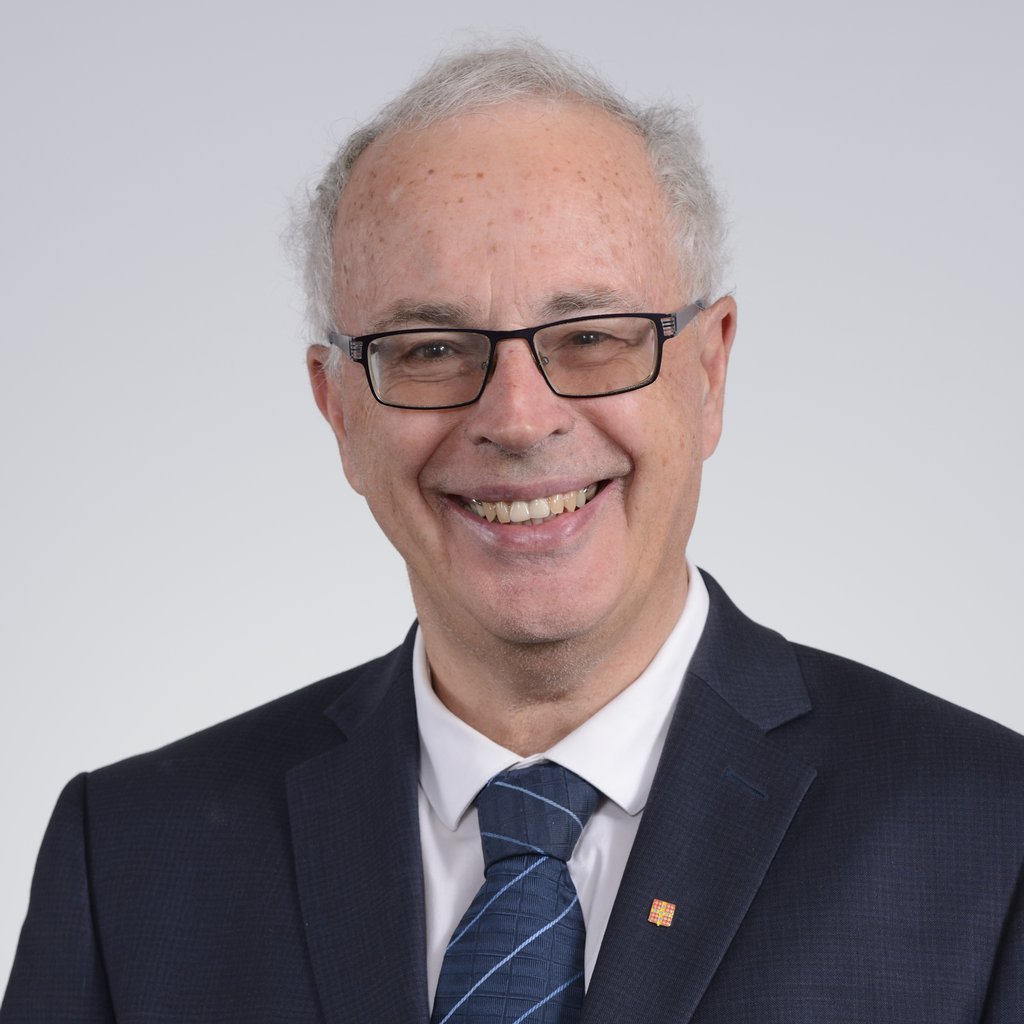
Guy Laforest
Professor Emeritus
Learn more
Eminent political scientist Guy Laforest has established himself as a prominent academic figure in Canada and an outstanding manager at some of the country’s leading academic and intellectual organizations. An expert on federalism, he has been a visiting professor at numerous foreign universities and is highly sought after as a media commentator.
Federalism and Québec
Professor Laforest is a leading expert on constitutional and referendum issues in Canada. He has garnered a sterling reputation for his work on the philosophical history of politics and the actualization of liberal democracy within the context of the Canadian and Québec schools of diversity and democracy. One of his major contributions has been to draw on political philosophy and intellectual history in offering a critique of Canadian federalism and Québec’s role within it. Over the past 30 years, he has been the English Canadian media’s go-to political scientist in Québec on the issue of federalism. Professor Laforest has also written in-depth studies of two leading political and intellectual figures: Pierre-Elliot Trudeau and Charles Taylor.
A prolific author, he has published 6 books, 82 chapters in collective works, and 49 academic articles. He has edited 25 collective works, overseen a 49-title series at Presses de l’Université Laval, and given more than 225 scholarly papers in 5 different languages (French, English, Spanish, Catalan, and German). He has also been invited to give presentations at the Privy Council Office in Ottawa and at Secrétariat du Québec des relations canadiennes.
Fluent in several languages, he has taught in Belgium, Spain, Austria, and the U.S. He has been deeply involved in advancing research and has had a hand in organizing some 30 conferences.
Professor Laforest has also been directly engaged in party politics, serving from 2002 to 2004 as president of the Action démocratique du Québec.
The academic world
Professor Laforest has been actively involved with various organizations that promote and advance academic research. For example, he has held positions with the International Association of Quebec Studies, chaired the scientific committee for the Federation for the Humanities and Social Sciences annual congress in 2001, and co-chaired the scientific committee for the Association francophone pour le savoir (Acfas) annual conference in 2013. When he retired from Université Laval in 2017, he was just beginning a term as chair of the Federation of Social Sciences and had a seat on the Acfas board.
In 2013, Professor Laforest became a Knight of the Ordre of la Pléiade in recognition of his service to the ideals of the Parliamentary Assembly of the Francophonie (APF). In 2014, he was admitted to the Royal Society of Canada’s Academy of Social Sciences, where he served on the expert reports committee for two years, and was a member of the task force on the future of higher education in Canada.
Few individuals have left such an indelible mark on political science research in Québec and Canada. From 2017 to 2022, Guy Laforest served as executive director of École nationale d’administration publique, a fitting finale for a long and successful career.

Hélène Lee-Gosselin
Professor Emeritus
Learn more
Management professor Hélène Lee-Gosselin is known not only for her remarkable contribution to research on women and work, but also for her extensive board and committee involvement. A staunch advocate for equity and diversity, she is one of Québec's leading scholars in the field of women's studies.
An outstanding administrator
Since joining the University in 1981, Professor Lee-Gosselin has taken a close interest in cutting-edge social issues such as women's entrepreneurship, employment equity, and the role of women in decision-making bodies. Her work, which is collaborative in nature, focuses on equity, ethics, and organizational governance, and she frequently turns to public and private partners to discern how inequalities are perpetuated within organizations and seek ways to eradicate them. The Faculty of Business Administration has recognized her efforts with a Hermès award for excellence in community relations.
Professor Lee-Gosselin has always played a very active role on campus, serving on numerous committees including the university student associations funding committee, the ombudsman nominating committee, and the Retirement Office ethics committee. She was also an ambassador for the University's Community campaign.
Professor Lee-Gosselin considers her board work for organizations such as Revenu Québec, Palais Montcalm – Maison de la musique, Desjardins Group, and Conseil supérieur de l'éducation and others as an extension of her work as a professor. It is an opportunity for her to share her knowledge and promote best practices. In addition to these responsibilities, she has also taught at CAS, Université Laval's college of corporate directors, since 2005, another way for her to effect positive change in organizational governance and management by encouraging executives, managers, and directors to advance equity and diversity. Her skills as an educator are so highly valued at CAS that the school honoured her with its Distinction en enseignement teaching award.
One of Professor Lee-Gosselin's most significant social contributions was her involvement on the expert panel commissioned in 1995 by Ministère de la Sécurité du revenu to lay the groundwork for and monitor the implementation of the Pay Equity Act. The legislation, whose goal is to better recognize the value of women's work in predominantly female jobs, has since become a model for other jurisdictions as well.
A leading figure in women's studies
In addition to her achievements in business administration, Hélène Lee-Gosselin has dedicated herself to the recognition and development of women's studies in Québec. In 2011, she helped create Réseau québécois en études féministes (Québec Women's Studies Network). She held the Claire-Bonenfant Chair in Women, Knowledge, and Societies from 1997 to 2001 and from 2010 to 2018. And she is the founder of Institut Femmes, Sociétés, Égalité et Équité, a women's studies institute established to bring together experts in the field and become a centre of expertise on equity and diversity issues. From 2013 to 2019, she also ran the Feminist Summer School, one of the most popular summer schools at Université Laval and the most well-attended feminist gathering in Québec.
Professor Lee-Gosselin is a deeply inspiring figure who has done a great deal to promote equality and diversity in society. Declared a «gender champion» by the Canadian Institutes of Health Research, she has received numerous honours, including the Desjardins Group Builder Award, the Québec City YWCA Advancement of Women Award, and the Governor General's Award in Commemoration of the Persons Case (2018), which honours a person who has made an outstanding contribution to the advancement of gender equality in Canada.

Jocelyne Moisan
Professor Emeritus
Learn more
Jocelyne Moisan, a pioneering figure in pharmacoepidemiology in Québec, is the founder and former director of Université Laval's graduate program in pharmacoepidemiology, one of the first at a French-language university. After dedicating much of her career to treatment adherence research, Professor Moisan leaves behind a significant legacy, including a new generation of researchers specializing in drug use.
A thriving research network
Professor Moisan has helped train numerous students during her nearly 30-year tenure at the Faculty of Pharmacy, including many from francophone Africa. A highly respected mentor, she has supervised or co-supervised 57 master's students, 11 PhD students, and 5 postdoctoral fellows.
Professor Moisan has also collaborated on over 30 funded research projects. The main focus of her research has been describing the use of drug treatments in populations, the factors associated with treatment use, and interventions to improve it. She has 114 articles, 25 book chapters and reports, and over 306 research summaries to her credit. The textbook Épidémiologie appliquée (Applied epidemiology), to which Professor Moisan contributed, received one of three Ministère de l'Éducation Awards for university teaching in 1997-1998.
In 2004, at the request of Fonds de recherche du Québec – Santé, Professor Moisan revived the Québec Network for Research on Drug Use (RQRUM), an organization she had previously directed for 8 years. RQRUM merged with the University Drug Research Group (GRUM) in 2012 to become the Québec Network on Drug Research, of which Professor Moisan is considered a co-founder. The merger helped bridge the gap between basic research and the evaluative and qualitative study of drug efficacy, and has spawned initiatives to promote drug discovery and optimization.
Professor Moisan also built an extensive national and international network of professional contacts, which she drew upon to organize numerous conferences and other academic events, including the 23rd International Conference on Pharmacoepidemiology in Québec City, the world's most prestigious conference in the field.
Helping people adhere to treatment
From 2009 to 2015, Jocelyne Moisan held the Chair on Adherence to Treatments, the first research chair established in partnership with the Faculty of Pharmacy. The Chair, whose objective was to study why patients don't adhere to prescribed treatments and propose solutions to the problem, established itself as an international centre of excellence in research and an important channel for disseminating knowledge among health care workers, user groups, and decision makers.
Professor Moisan also played an enthusiastic role in helping create and drive the Mouvement pour l'adhésion aux traitements, a volunteer initiative bringing together organizations and individuals interested in implementing innovative models to encourage adherence to treatment. This initiative, a real plus for Québec's health care system, is a good example of Jocelyne Moisan's determination to put science to work for society.

James Douglas Thwaites
Professor Emeritus
Learn more
James Douglas Thwaites has always been determined to see his students succeed. That's why he increased the number of student mobility agreements in industrial relations, coached student teams in competitions, and made a difference by giving back. Well respected for his insightful interventions in public- and private-sector workplaces, he is also a sought-after speaker and researcher.
An educator first
For over 40 years, teaching has been the cornerstone of Professor Thwaites' work in the Department of Industrial Relations. He has always gone above and beyond, offering extra courses and broadening their scope on subjects ranging from unionism to globalization, corporate management, and human resources. Professor Thwaites has supervised 60 graduate students and been a reader for 88 others over the course of his career. He has also taught as a visiting professor at other institutions, including Université de Sherbrooke, Université du Québec à Montréal, and École nationale d'administration publique, where the students were just as enthusiastic about his courses. Université Laval recognized his dedication to education in 2008–2009 with the Career Award in Teaching.
In an effort to provide better training and richer experiences for students, Professor Thwaites significantly expanded the department's International Profile program by signing agreements with universities in Canada, the U.S., Mexico, France, Belgium, and Australia. He also collaborated with the International Bureau to organize the Japan-Canada Symposium, where students from 10 Japanese and 12 Canadian universities explored the theme «Young people and the labour market.»
Generous by nature, Professor Thwaites has always worked tirelessly to ensure his students flourish. For many years, he was a coach and judge for Excalibur, the Canadian university tournament in human resources, and for Université Laval's industrial relations competition. He also created and funded a foundation that awards academic and community engagement scholarships to deserving members of the student body. This exceptional educator has made significant personal donations to the library's general and rare book collections and has been involved in managing the Gérard-Dion Fund, which has made substantial contributions to research. His generosity has made a lasting impact on training and research at Université Laval.
Labour relations and human resources management
As an academic dedicated to his university, his discipline, and to teaching, he sat on the Student Affairs Committee and served as undergraduate program director and head of the Department of Industrial Relations. He has also been called upon to help assess programs at other universities in Canada and abroad. His interest in education and working conditions for teaching staff led him to serve as union delegate, secretary, and eventually vice president for Syndicat des professeurs et professeures de l'Université Laval.
Professor Thwaites has presented 71 papers in North America, Europe, and Asia, and authored 48 articles and 26 books in French, English, and Spanish. He has also founded, administered and directed academic journals. His workplace interventions have taken him into a range of settings, including Labour Canada and the health care, postal services, and university press spheres. He has also chaired Canada's industry councils for textiles and construction. Professor Thwaites has helped put Université Laval in the international spotlight through his work as a consultant for entities such as the International Labour Organization, the African Union, the European Centre for the Development of Vocational Training (Saloniki, Greece), and Mexico's Department of Labour.
Emeritus statuses for years prior to 2017 are currently available in French only.